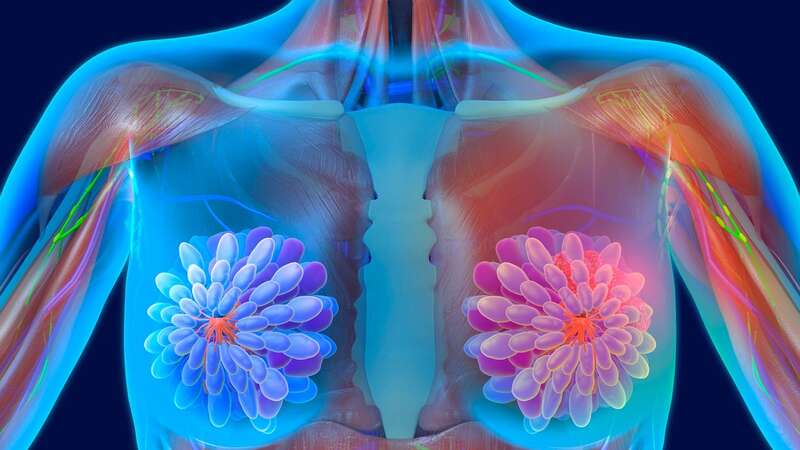

When it comes to detecting small, early breast cancers, mammography is good – but could it be better? Would AI help? Could it detect tumours that might have been missed using current screening methods?
Turns out it could. We know this because of the groundbreaking work by the University of Aberdeen including the analysis of 220,000 mammograms from more than 55,000 people to determine how well an AI tool could detect breast cancers.
The AI software is named “Mia” and was created by Kheiron Medical Technologies Ltd.
Its accuracy has been assessed by a team at the university led by Professor Lesley Anderson, with Dr Clarisse de Vries in charge of data analysis.
The great news is Mia also successfully identified potentially missed cancers, known as “interval” cancers, detected between screening visits.
 Covid virus can be cut to pieces by molecular 'scissors' in drugs to protect us
Covid virus can be cut to pieces by molecular 'scissors' in drugs to protect us
Astoundingly, the team found that Mia would have recalled 34.1% of the women who went on to develop cancer in between screenings.
Using current screening measures these cancers remain undetected and grow until the women developed symptoms. So how are mammograms assessed for the presence of cancers?
Dr De Vries explains: “Currently, two experts examine each mammogram and decide whether the person should be invited back for further investigations. If the two experts disagree, a third expert makes the final decision.
Mia acts as an extra expert, examining a screening mammogram and giving an opinion as to whether that person should be invited back for additional investigations. “Our finding is a massive step forward in using AI technology in diagnostic medicine – we showed that once ‘tuned’ to the local environment, AI can be of enormous benefit to clinicians and, importantly, people who may be at risk of developing cancer.”
Dr De Vries explains: “Our results show that AI, and in this case Mia, offers huge potential for detecting cancers that may otherwise be missed.
“Fundamentally, however, our study shows that AI tools must be tested first and tuned for the local population and conditions and we have been fortunate to have been able to do just that here.”
Professor Roger Staff, the head of imaging physics at NHS Grampian, added: “This is a critical study, identifying the steps required to get this technology into service.
“Although the results indicate that the technology is not quite ‘plug and play’, it has the potential for major health and operational gains for the service.”
Brilliant.